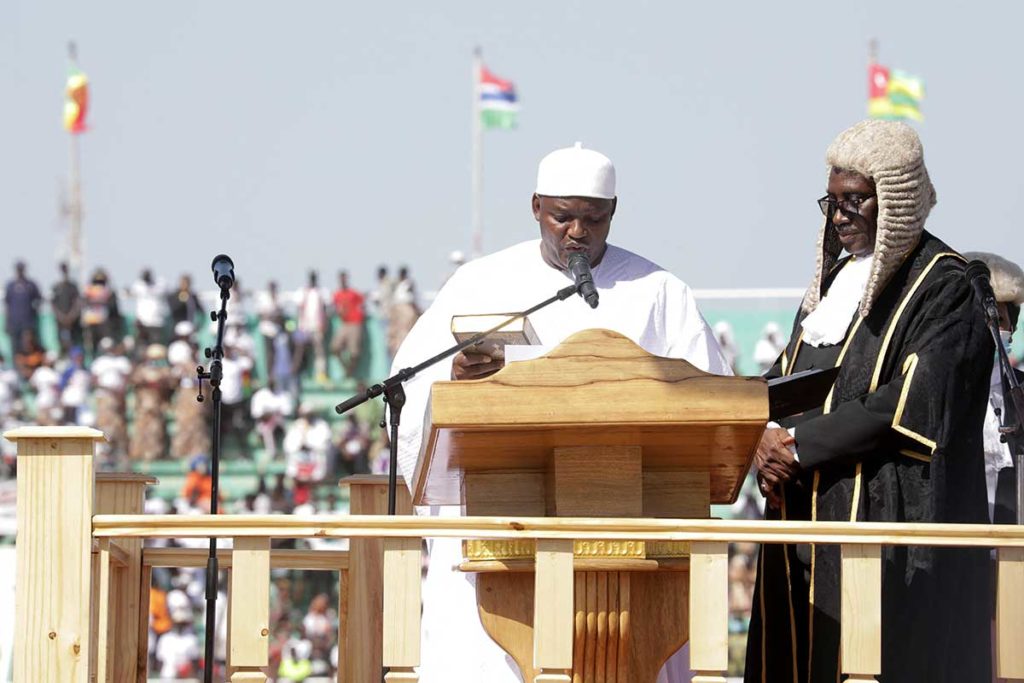Gambian President Adama Barrow on January 19 pledged to work to jump-start the economy and ensure broad-based development gains as he was sworn in for a second five-year term in office.
Barrow, 56, came to power in 2017 by unseating his autocratic predecessor, Yahya Jammeh, at the polls. He comfortably won re-election last month with 53% of the first-round vote.
During his first term, he improved relations with many foreign countries that had cooled during Jammeh’s 22-year tenure, and worked to restore civil liberties that were repressed during that period.
He faced a challenge reviving the economy of mainland Africa’s smallest country. The coronavirus pandemic pushed Gambia into recession in 2020, keeping tourists from coming to its white-sand beaches.
Growth is estimated to have bounced back to around 5% last year.
“Today we can comfortably conclude that my election to another five years is a vote of confidence in my government, a vote of acknowledgment of my achievements,” said Barrow, dressed in a white cap and robe, after being sworn in before an audience that included several other West African heads of state.

“2022 to 2027 is a period to press on for accelerated growth, expansion, and advancement. The focus now centers on economic development,” he said.
He reiterated a previous commitment to introduce a new constitution. He has previously said it would introduce presidential term limits, but has not said whether that would prevent him from seeking additional terms.
Debates about presidential term limits have flared in several of Gambia’s West African neighbors, including Cote d’Ivoire and Guinea, whose presidents in 2020 pushed through constitutional changes in order to stay in power beyond the two-term limit.
Barrow had pledged as a candidate in 2016 to serve only three years if he was elected, but later went back on that commitment.